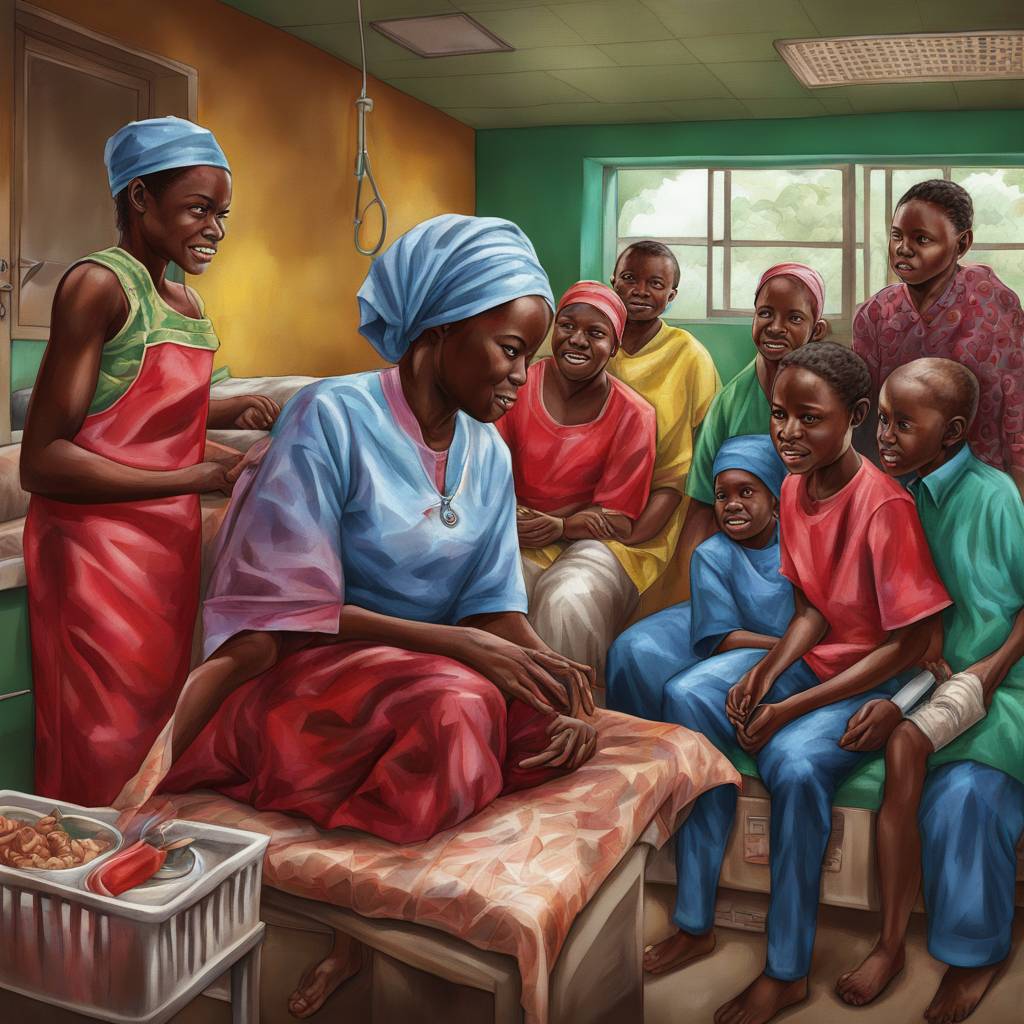NaYa Health, co-founded by Dr. Marthe-Sandrine Eiymo Mwa Mpollo, is a digital patient assistance platform aimed at helping under-served patients in low-income countries in west Africa access the medication they need for sickle cell disease. With about 80% of sickle cell disease cases occurring in sub-Saharan Africa and with many patients lacking access to universal medical coverage, affordability is a major barrier to treatment. NaYa Health offers solutions such as community savings, deferred payments, and a portable health-only savings account to help patients manage health risks and safeguard earnings. The platform aims to ensure timely access to medication even when patients are short of cash, ultimately improving healthcare outcomes for individuals living without insurance.
Mpollo’s passion for medicine and healthcare in under-resourced communities was ignited during her childhood in Cameroon, where she became aware of the impact of sickle cell disease on families and communities. Despite initially setting out to become a medical doctor, Mpollo pursued a career in life science research and obtained a doctorate from the faculty of medicine at the University of Cincinnati in the US. Her research focused on developing therapies for sickle cell disease, leading her to recognize the critical importance of access to medication in realizing the full life-saving potential of research findings. This realization inspired her to launch NaYa Health, with a focus on addressing the affordability and access barriers faced by patients in low-income countries in west Africa.
In Zambia, a team of entrepreneurs, researchers, and health professionals are leveraging artificial intelligence to improve care for pregnant women through the DawaMom project. Despite progress in reducing the death rate for pregnant mothers, Zambian women still face a 1% risk of dying in pregnancy or childbirth. Dawa Health, headquartered in Lusaka, is using AI tools, last-mile health workers, mobile clinics, and digital platforms to enhance maternal and child health services. The project includes over 60 community health workers supporting in-community healthcare and over 800 mothers signed up on the mobile platform. AI models are used to respond to patient queries and analyze ultrasound scan images to identify high-risk pregnancies, enabling better healthcare outcomes for pregnant women in Zambia.
NaYa Health’s pilot implementation in Cameroon’s capital has already shown promising results, boosting the ability of informal workers to handle unexpected challenges and increasing resilience among informally employed individuals. The platform has also led to increased income for local medical providers and guaranteed access to critical services for patients with sickle cell disease. NaYa Health was selected in the financial inclusion challenge by MIT Solve, highlighting the impact of the platform in improving access to healthcare for under-served populations. By providing affordable and accessible medication to patients in low-income countries in west Africa, NaYa Health is helping to address the healthcare disparities faced by individuals living without insurance in the region.
Overall, the initiatives led by Dr. Marthe-Sandrine Eiymo Mwa Mpollo and the team in Zambia demonstrate the power of innovation and technology in improving healthcare outcomes in low-income countries in Africa. By leveraging AI, digital platforms, and community health workers, these projects are making a significant impact in addressing healthcare disparities and increasing access to essential services for vulnerable populations. With a focus on affordability, access, and tailored solutions for local healthcare challenges, these initiatives are paving the way for more effective and sustainable healthcare delivery in resource-constrained settings. Through collaboration, innovation, and a commitment to improving healthcare for all, these projects are helping to transform the healthcare landscape in Africa and beyond.













